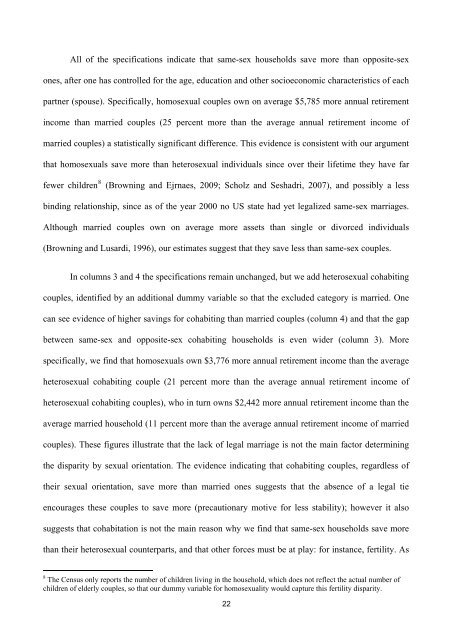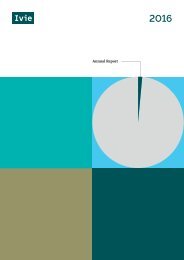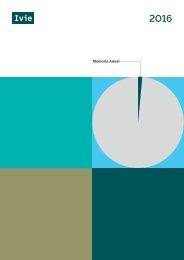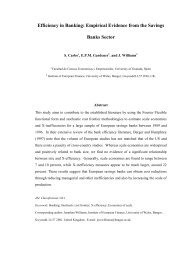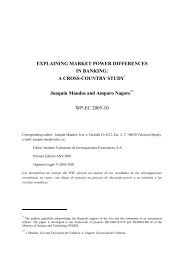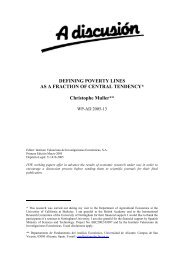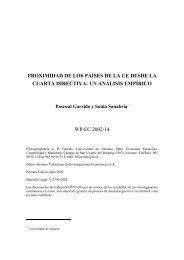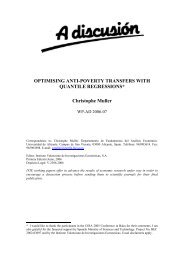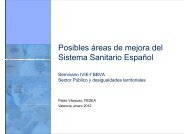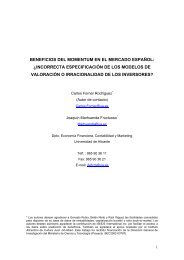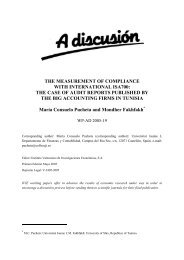Download PDF - Ivie
Create successful ePaper yourself
Turn your PDF publications into a flip-book with our unique Google optimized e-Paper software.
All of the specifications indicate that same-sex households save more than opposite-sex<br />
ones, after one has controlled for the age, education and other socioeconomic characteristics of each<br />
partner (spouse). Specifically, homosexual couples own on average $5,785 more annual retirement<br />
income than married couples (25 percent more than the average annual retirement income of<br />
married couples) a statistically significant difference. This evidence is consistent with our argument<br />
that homosexuals save more than heterosexual individuals since over their lifetime they have far<br />
fewer children 8 (Browning and Ejrnaes, 2009; Scholz and Seshadri, 2007), and possibly a less<br />
binding relationship, since as of the year 2000 no US state had yet legalized same-sex marriages.<br />
Although married couples own on average more assets than single or divorced individuals<br />
(Browning and Lusardi, 1996), our estimates suggest that they save less than same-sex couples.<br />
In columns 3 and 4 the specifications remain unchanged, but we add heterosexual cohabiting<br />
couples, identified by an additional dummy variable so that the excluded category is married. One<br />
can see evidence of higher savings for cohabiting than married couples (column 4) and that the gap<br />
between same-sex and opposite-sex cohabiting households is even wider (column 3). More<br />
specifically, we find that homosexuals own $3,776 more annual retirement income than the average<br />
heterosexual cohabiting couple (21 percent more than the average annual retirement income of<br />
heterosexual cohabiting couples), who in turn owns $2,442 more annual retirement income than the<br />
average married household (11 percent more than the average annual retirement income of married<br />
couples). These figures illustrate that the lack of legal marriage is not the main factor determining<br />
the disparity by sexual orientation. The evidence indicating that cohabiting couples, regardless of<br />
their sexual orientation, save more than married ones suggests that the absence of a legal tie<br />
encourages these couples to save more (precautionary motive for less stability); however it also<br />
suggests that cohabitation is not the main reason why we find that same-sex households save more<br />
than their heterosexual counterparts, and that other forces must be at play: for instance, fertility. As<br />
8 The Census only reports the number of children living in the household, which does not reflect the actual number of<br />
children of elderly couples, so that our dummy variable for homosexuality would capture this fertility disparity.<br />
19


